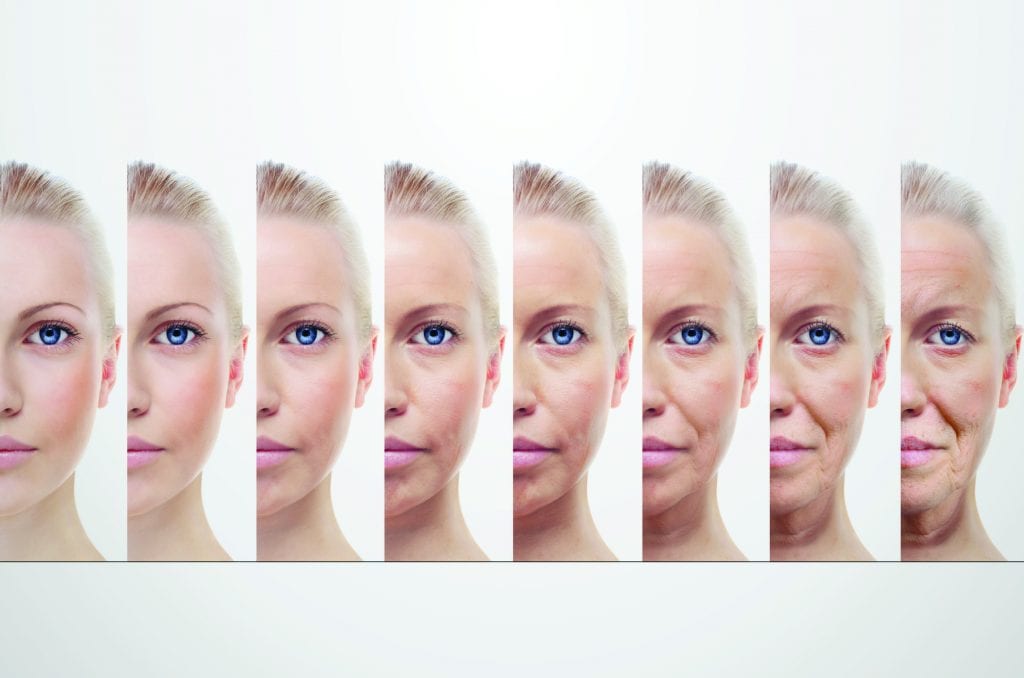Aging and acne breakouts are two of the most challenging skin issues people can experience, but it’s possible to manage them with expert advice and consistent care, professionals say. No matter how old you are, it’s a good idea to start thinking about products and guidelines that can make a real difference. A knowledgeable skin care professional can address your unique needs and help you achieve healthy, fresh-looking skin.
skin care at different stages
Carol Anderson, R.N., CANS, owner of Nouveau Medspa, says there are several skin care rules that apply at any age. They include daily sunscreen, a gentle cleanser, proper sleep, regular exercise, complete nutrition and good hydration. But there also are guidelines you can follow at different ages to improve the look and feel of your skin.
“People in their 20s and 30s still may experience breakouts, so they should look for products with glycolic, salicylic or lactic acid,” Anderson advises. “Lactic acid is especially gentle and specific to preventing blemishes.” She says a 20-minute homemade facial mask of whipping cream and raw honey can help soothe breakout-prone skin. “The cream contains lactic acid, and honey is a natural antimicrobial and anti-inflammatory,” she notes.
In your 40s and 50s, skin tends to produce less collagen, so you may begin to see fine lines and loss of volume, Anderson says. Injectable fillers can help, but it’s important to ensure skin is in healthy condition first. “Your skin probably is thinning and drying at this point,” she says. “Treatments like microneedling with Sculptra (an injectable cosmetic filler) or platelet-rich plasma can return skin to a healthier thickness. They also can improve elasticity and correct fine lines and other surface issues.”
In your 60s and beyond, Anderson says you should continue to use treatments that are gentle to thinning skin. “At age 30, your skin cells turn over on their own every 30 days,” she says. “In your 40s, it’s every 40 days, and so on. In your 60s, you need skin care products and treatments that encourage cell turnover. Also, if you follow a healthy lifestyle, your skin will respond. The more active you are, the more tissues like skin, hair and nails will renew themselves. If you behave youthfully, your skin will look more youthful.”
taking control of acne
SLUCare dermatologist Dr. Mallory Abate says acne can be a frustrating problem, but there are ways of treating it and lessening its effects. “Acne occurs when there is too much sebum or oil buildup on the skin, leading to bacterial growth and inflammation,” she says. “Two types are common—adolescent acne that usually responds to topical treatments and oral antibiotics, and hormonal acne that can occur in women from their 20s through their 50s.” Teenage acne appears as whiteheads and blackheads in the T-zone area of the face, and hormonal acne usually produces bumps under the skin on the chin, jawline and sides of the face, she says.
Abate says treatment for adolescent acne may include a topical retinoid, a benzoyl peroxide preparation and an oral antibiotic like doxycycline. Home care should include gentle cleansing twice a day with a product like CeraVe or Cetaphil. “Adolescent acne can occur on the chest or back as well, making it more difficult to reach and treat,” she says. “It can be made worse by sweating during exercise and friction from clothing and sports bras. In these cases, I often prescribe a topical regimen, including a retinoid foam and a benzoyl peroxide wash.”
For hormonal acne in women, the drug spironolactone may be prescribed in tablet form. “The goal is to reduce sebum production by the skin,” Abate says. “Hormonal acne may get worse during pregnancy, particularly in the first or second trimester, and it may improve on its own or flare after delivery when there is a major hormone shift.” She adds that some progesterone-only contraceptives can contribute to hormonal acne as well.
“We take the treatment of acne very seriously, especially in teens,” Abate says. “It can have a huge impact on self-esteem and confidence at any age. For the patient’s best interests, acne should be treated aggressively. If it is persistent or severe, we may prescribe another medication called isotretinoin that targets the skin’s sebaceous glands to reduce sebum production.”
What NOT to do when you have acne
- Switch back and forth between treatments. This can cause irritation; instead, give a new acne product 6 to 8 weeks to work, and see if there is improvement.
- Squeeze or pop blemishes. The pressure may push pus, dead skin cells and bacteria deeper into your skin and increase inflammation. It also can contribute to scarring of the skin.
- Apply acne medication only on blemishes. This approach won’t help you prevent new breakouts. Apply a thin layer of the medication evenly over your problem areas.
- Use makeup that isn’t pore-friendly. Look instead for products that say ‘non-comedogenic’ or ‘won’t clog pores.’
- Share makeup and applicators. Doing this can transfer another person’s bacteria, oil and dead skin cells onto your skin.
- Sleep with makeup on. Remove it before bedtime to reduce the likelihood of clogged pores.
- Wash your face more than twice a day. Too much washing or scrubbing can further irritate skin and cause it to produce even more oil.
- Dry out your skin. Don’t overuse astringents. If your skin feels dry, apply a moisturizer formulated for acne-prone skin.
- Avoid or delay treatment. The longer you leave acne untreated, the more likely you are to develop scarring.
Source: American Academy of Dermatology
